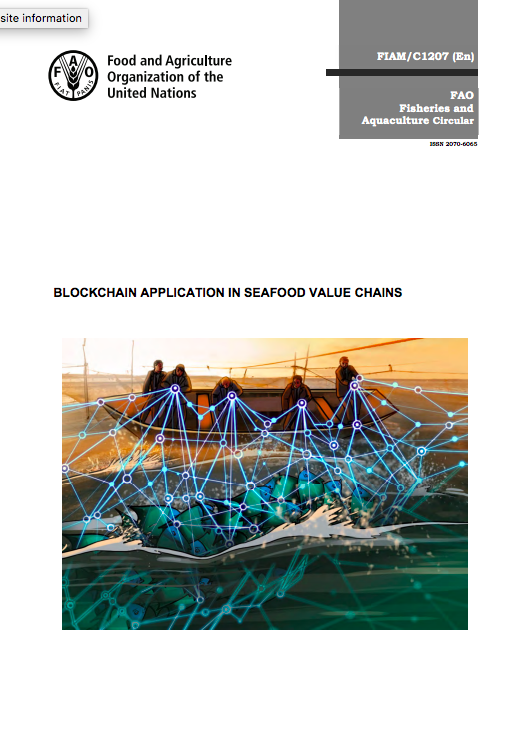Blockchain application in seafood value chains

ABSTRACT
Innovation through information and communication technologies is a key enabler in transforming food systems and holds great potential to achieve the Sustainable Development Goals. Recent developments, such as mobile technologies, smart networks, drones, remote-sensing, distributed computing, as well as disruptive technologies, such as blockchain, the Internet of things and artificial intelligence, are serving as the premise for a “digital revolution” whereby management of resources can potentially be highly optimized, intelligent and anticipatory.
This publication establishes chain traceability as the substrate over which digital solutions need to operate. It provides a comprehensive introduction to blockchain, and covers smart contracts, explores how they relate to blockchain with an example of their use in seafood value chains, and then examines major development and operational considerations for blockchain applications.
The publication also analyses the seafood supply chain with considerations on flag, coastal, port, processing and market States. It identifies general control elements (critical tracking events and corresponding key data elements) that form the basis for traceability monitoring and acquisition, and summarizes suitability for blockchain. It also investigates considerations for legality, transparency, species fraud and food safety.
The strategic fit of blockchain technology in seafood value chains is further investigated, with review and analysis of seven initiatives/projects. The publication then provides a key analysis as to whether blockchain for seafood traceability is the right tool, and a comprehensive investigation of operational opportunities with the use of blockchain. The publication concludes by providing a set of potential trade and public policy implications and recommendations.